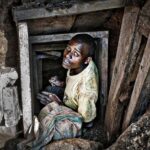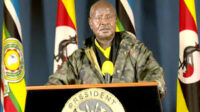In July 2007, 26-year-old customs officer Floribert Bwana Chui Bin Kositi was brutally murdered in Goma, eastern Democratic Republic of Congo, after refusing bribes from smugglers attempting to import spoiled rice from Rwanda. His bloodied body was dumped outside a university campus just two days after he was kidnapped, in what campaigners describe as a “mafia-style” killing intended to silence anyone resisting corruption in the mineral-rich but conflict-torn region.
Kositi, a devout Catholic and newly graduated customs official, had consistently rejected bribes, despite escalating offers ranging from $1,000 to $2,000 and pressure from public authorities to turn a blind eye. His steadfast commitment to integrity and Christian values cost him his life, but his legacy of courage and justice has endured.
Last year, the Catholic Church declared him a martyr, recognising that his death came as a direct result of his refusal to compromise his faith and principles. In a rare move that accelerates the usually decades-long canonisation process, Kositi was beatified in Rome last month, bringing him one step closer to becoming a saint. Once a miracle is attributed to him, the young Congolese customs officer will officially be canonised.
Fr Francesco Tedeschi, who is leading the campaign for sainthood, says Kositi’s story defies the climate of fear and corruption in North Kivu, a region plagued by armed militias and a global scramble for cobalt and other critical minerals used in mobile phones and electric cars. “The warning completely failed because of Kositi’s legacy of love and justice. His courage continues to inspire a generation to stand up against corruption,” Tedeschi said.
Kositi’s beatification has resonated deeply in DR Congo and beyond, offering a symbol of hope and moral resistance in a country where corruption and violence have long overshadowed governance. If canonised, he would become one of the few African saints recognised for defending integrity in public service, marking a historic moment for both the Catholic Church and the fight against systemic corruption in Africa.














Leave a comment